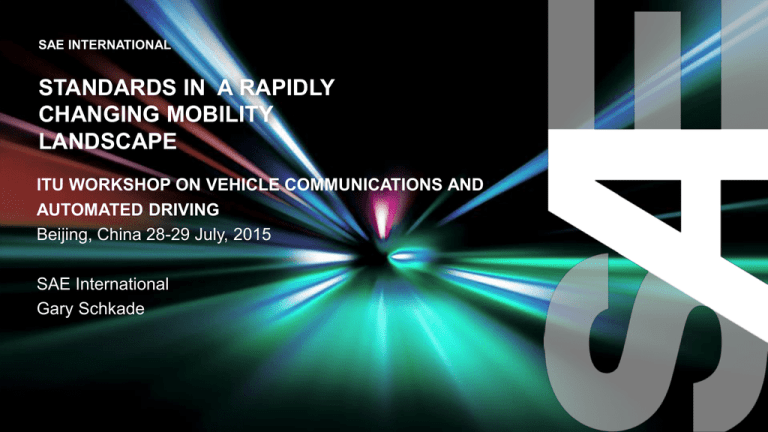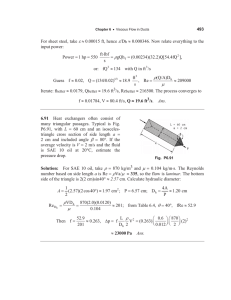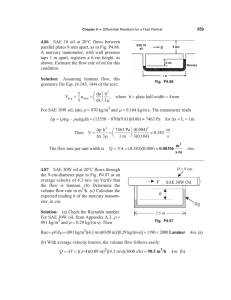
SAE INTERNATIONAL
STANDARDS IN A RAPIDLY
CHANGING MOBILITY
LANDSCAPE
ITU WORKSHOP ON VEHICLE COMMUNICATIONS AND
AUTOMATED DRIVING
Beijing, China 28-29 July, 2015
SAE International
Gary Schkade
SAE portfolio. Reaching Over 145,000 individuals in over 110 Countries
Over 20,000 Volunteers from 51 countries participate on our Standards Committees
PUBLICATIONS
100,000+ collection of
technical publications
MEDIA
Magazines, eNewsletters,
custom publishing, Tech
Briefs Media Group
FOUNDATION
Charitable arm of SAE
International, supporting
STEM for over 30 years
PROFESSIONAL
DEVELOPMENT
400 courses portfolio,
webinars; in-house, corporate
and self-paced learning
TECHNICAL
STANDARDS
35,000+ aerospace and
ground vehicle standards
SAE INTERNATIONAL©
MEMBERSHIP
145,000 members worldwide,
multiple-tiered/benefit model
SAE International 2015
2
The big picture…
Copyright (c) 2014 SAE International. All rights reserved.
4
SAE International 2015
SAE INTERNATIONAL©
SAE Standards Development
http://www.sae.org/standardsdev/groundvehicle/gvorgchart.pdf
530 committees
8,957 members
2,898 companies
1,496 meetings/yr.
Committee meetings are open
to all interested parties, but
only committee members vote
on draft documents.
Individuals participate on
committees as technical
experts and not as
representatives of their
organizations
SAE INTERNATIONAL©
SAE International 2015
4
SAE International Global Relationships
SAE INTERNATIONAL©
SAE International 2015
5
SAE GROUND VEHICLE
STANDARDS
COOPERATIVE RESEARCH
PROJECT WORK
SAE INTERNATIONAL
SAE International 2015
6
Examples: Cooperative Research Projects and Connected Vehicles
• Standards and Test Procedures for Plug-in Electric Vehicle safety and
Interoperability with Electric Vehicle Supply Equipment
• Wireless Charging: J2954: Industry/gov’t collaborative effort for the
development of minimum performance, interoperability and safety criteria for
wireless charging of EVs/PHEVs.
• Federal Highway funded project on Dedicated Short Range Communication
and performance requirements for V2V communications related to expected
NHTSA rulemaking in V2V space.
SAE INTERNATIONAL©
SAE International 2015
7
SAE
GLOBAL GROUND VEHICLE
STANDARDS BUSINESS UNIT
STANDARDS ACTIVITIES IN AUTOMATED VEHICLES/CONNECTED
VEHICLES/INTELLIGENT TRANSPORTATION SYSTEMS
SAE INTERNATIONAL
SAE International 2015
8
Fundamental Question: Why Connect or Automate? A few anticipated
benefits
• Reduced fatalities and fewer accidents
• Greater fuel economy and lower emissions
• Reduced traffic congestion, increase existing road capacity
• Improved and new mobility options for aging population and disabled
• Productive time in vehicle
OEM’s predict semi autonomous vehicles by mid-decade and fully autonomous vehicles
by 2020
SAE INTERNATIONAL©
SAE International 2015
9
From Connected Vehicles: Multiple connections increase system and
performance complexity, and create security and privacy issues.
V2V
AIoT
V2G
V2P
V2I
SAE INTERNATIONAL©
SAE International 2015
10
and advanced safety and advanced driver assistance systems . . .
Road condition sensor
Fire detection sensor
Magnetic sensor
Vehicle distance sensor
Vehicle speed, acceleration
sensor
Forward obstacle sensor
Collision detection sensor
Blind spot monitoring camera
Drive recorder
Pedestrian collision injury
reduction structure
Side obstacle sensor
Electronic control system
Air pressure sensor
Message display system
Inside door lock/unlock
Hands-free system
Rear obstacle sensor
Airbag
Rear view camera
Head-up display
Water repelling windshield
Steering angle sensor
Seatbelt pretensioner
Electronic control throttle
Driver monitoring sensor
Electronic control brake
GPS sensor
SAE INTERNATIONAL©
SAE International 2015
11
…to automated vehicles
LIDAR
Aerial
Camera
Position
Estimator
Computer
SAE INTERNATIONAL©
SAE International 2015
Radar
12
What standards are needed for AV/CV/ITS?
Sensors accuracy and reliability
Data Positioning systems accuracy and reliability
Security
Driver Distraction
Electronic system reliability
HMI
Privacy
Future vehicle vs existing fleets
Entire vehicle
system interoperability
Powertrain system interoperability
SAE INTERNATIONAL©
SAE International 2015
13
Automated/Connected Vehicles - Optimal Standard Development path (US)
Innovation/Research/Testing
Commercialization
Market acceptance
Standards
Legislation
SAE INTERNATIONAL©
SAE International 2015
14
Automated/Connected Vehicles - Current Standards Development path (US)
Innovation/Research/Testing
Commercialization
Market acceptance
Standards
Legislation
SAE INTERNATIONAL©
SAE International 2015
15
SAE and Connected/Automated Vehicle Technology
Intelligent Transportation Systems: Ancillary Activities
•
Mapping all SAE Connected/Automated/ITS Vehicle standards activities across all SAE
sectors:
• Expected portal launch date: August 2015
• Expanding alliances with non-traditional Standards Partners:
• Federal Highway - International Standards harmonization project
• American Association of State Highway and Transportation Officials (AASHTO)-Infrastructure
• Transportation Research Board (2014 /5 Autonomous Vehicle Symposium- Ann Arbor)
• State and Local DOTs (automated vehicle testing on public roads)
• Consumer Electronics Association (CEA). MEMA, SEMA: EMC and consumer device interference
• Technology Maintenance Council (TMC) commercial vehicle and fleet maintenance/Platooning –
new TMC committee on fleet platooning (CACC incorporating DSRC)
• International Telecommunications Union (ITU)
•
Geospatial Transportation Mapping Association (GTMA): Digital Asset Management and base
maps
SAE INTERNATIONAL©
SAE International 2015
16
RESULTING SAE CROSS COUNCIL CONNECTED MOBILITY STANDARDS MATRIX
Categories, Subcategories And Activities
SAE INTERNATIONAL©
17
Top AV/CV/ITS Standards Activities within SAE International
Over 59 Active Committees/More than 46 Standards Published or in Progress
STANDARDS COMMITTEES:
•
•
•
•
•
•
•
•
•
Dedicated Short Range Communication
Vehicle Active Safety
Truck and Bus Active Safety
Functional Safety
Truck and Bus Functional Safety
On Road Automated Vehicles
Truck and Bus Automated Commercial Vehicle
Vehicle Electrical System Security (CyberSecurity)
Truck and Bus CyberSecurity
SAE INTERNATIONAL©
SAE International 2015
18
Top AV/CV/ITS Standards Activities within SAE International
Over 59 Active Committees/More than 46 Standards Published or in Progress
STANDARDS COMMITTEES:
•
•
•
•
•
Automotive Electronic Systems Reliability
Vehicle Architecture For Data Communications
Vehicle Event Data Recorder
Truck and Bus Event Data Recorder
Safety and Human Factors incorporating Driver Vehicle Interface in
Automated/Connected/ITS Vehicles.
• Adaptive Beam Lighting
• Truck and Bus Driver Distraction
SAE INTERNATIONAL©
SAE International 2015
19
Top Documents
•
•
•
•
•
•
•
•
J2980 Functional Safety: Companion to ISO26262 for Automotive ASIL classifications
J3018Safe Testing of Highly Automated Vehicles on Public Roads:
J3016 Terms and Definitions: Levels of Automated Driving Systems: Being globally
harmonized and adopted in ISO
J2735: Dedication Short Range Communication Message Sets: Updated to include
message sets needed for Signal Phase and Timing (traffic signaling) SPaT Map.
J2353: Data Dictionary for Advanced Traveller Information Systems (ATIS)
J2540/2: ITIS Phrase Lists (International Traveler Information Systems)
J3061 WIP CyberSecurity in Balloting Stage expected publication 3rd qtr. 2015
J3101 Requirements for Hardware-Protected Security for Ground Vehicle Applications
(WIP)
SAE INTERNATIONAL©
SAE International 2015
20
Top Documents AV/CV/ITS
•
•
•
•
•
•
•
•
J2395 ITS –In-Vehicle Message Priority
J2808 Road/Lane Departure Warning Systems: Information for the Human Interface
(WIP)
J3083 Reliability Prediction for Automotive Electronics(WIP)
J2988 Guidelines for Speech Input and Audible Output in a Driver Vehicle Interface
(WIP)
J2944 Operational Definitions of Driving Performance Measures and Statistics
J3063* Active Safety Terms and Definitions
J3088 Active Safety System Sensors
J3087: Automatic Emergency Braking (AEB) underway for Crash Imminent Braking
based on CAMP (Collision Avoidance Metrics Partnership) project
SAE INTERNATIONAL©
SAE International 2015
21
Connected Vehicles Communication and Message Standards: Dedicated
Short Range Communication (DSRC) Protocol
A system of real time wireless communication
(Wi-Fi) using Dedicated Short Range
Communication (DSRC) in the 5.9Ghz band
between:
•
•
Vehicle to Vehicle (V2V)
Vehicle to Infrastructure (V2I)
•
•
•
SAE INTERNATIONAL©
Messages transmitted 10 times/sec (300m
range)
Basic Safety Message: vehicle position,
speed, heading, acceleration, size, brake
system status, etc.
Privacy is protected (vehicle VIN and location
is NOT recorded or tracked)
SAE International 2015
22
SAE DSRC Standards activities in Connected Vehicle: Supports expected
National Highway Traffic Safety Administration expected V2V rulemaking
SAE J2735 – Dedicated Short Range Communications Message Set Dictionary
• Supports interoperability
• Defines standardized message sets
• Defines formats for basic safety message set dictionary
• Incorporates Signal Phase and Timing message sets (SPaT)
SAE J2945 (WIP) – Dedicated Short Range Communications Minimum Performance
• Specifies minimum communication performance requirements
• Defines message transmission rate, channel usage, optional data usage in various
situations
Examples of In Vehicle Driver Alerts
•
Forward Collision Warning
•
Emergency Electronic Brake Light
•
Intersection Movement Assist
•
Blind Spot Warning
•
Lane Change Warning
•
Do Not Pass Warning
•
Right Turn in Front
•
Signal Phase and Timing
•
Curve Speed Warning
SAE INTERNATIONAL©
SAE International 2015
23
New DSRC Work in Progress for Vulnerable Road Users
(Pedestrians/Cyclists/Disabled).
SAE J2945-9
To include Pedestrian Safety Messages (PSM) to support interoperability among various types
of handheld devices, vehicles, and vehicle-pedestrian applications.
SAE INTERNATIONAL©
SAE International 2015
24
SAE Intelligent Transportation Systems (ITS) Standards Development and
DSRC
SAE under 5 year contract with FHWA for ITS standards development
• Work performed by SAE contractors working in concert with the SAE
DSRC Technical Standards Committee
New Work in Progress: J2945/6 for vehicle platooning using DSRC and Cooperative
Adaptive Cruise Control Technology
Developing Joint Standards activities with other strategic stakeholders and nontraditional partners:
• New project with Infrastructure on uniform pavement markings for
optimizing machine vision systems for active safety technology: Lane
Departure Warnings (LDW) and Lane Keeping Assistance Systems (LKA)
SAE INTERNATIONAL©
SAE International 2015
25
Standards for Safety: Functional Safety Committee: J2980 – “Considerations for ISO
26262 ASIL Hazard Classification” Published June 2015
SAE International’s Functional Safety Committee completed a new, recommended
practice intended to provide a global, harmonized approach for determining
Automotive Safety Integrity Level (ASIL) classifications for vehicle level hazards
and is consistent with guidelines provided in ISO 26262.
Reviews factors to be taken into account for determining the exposure, severity and
controllability for a given hazard.
SAE INTERNATIONAL©
SAE International 2015
26
Automated Vehicles – Sensing Systems
Sensor quality / reliability &
HMI are critical to the
successful deployment of
automated vehicles - SAE
Functional Safety, Safety and
Human Factors & Active
Safety Committees are
focused on these areas
SAE INTERNATIONAL©
SAE International 2015
27
J3018 Safe Testing of Highly Automated Vehicles on Public Roads:
SAE’s On Road Automated Vehicle Committee (ORAV)
Guidelines for the safe conduct of on-road tests of vehicles equipped with prototype
conditional, high, and full (levels 3-5) automated driving systems (ADSs), as defined
by SAE J3016.
Published May 2015
SAE INTERNATIONAL©
SAE International 2015
28
ORAV:
J3016 Taxonomy and Definitions for terms related to on-road motor vehicle
Automate Driving Systems (ADS)
With the goal of providing common terminology for automated driving, SAE
International’s new standard J3016 delivers:
• Harmonized classification system and supporting definitions that:
• Identify six levels of driving automation from “no automation” to “full automation”.
• Base definitions and levels on functional aspects of technology.
• Describe categorical distinctions for a step-wise progression through the levels.
• Are consistent with current industry practice.
• Eliminate confusion and are useful across numerous disciplines (engineering, legal,
media, and public discourse).
• Educate a wider community by clarifying for each level what role (if any) drivers have in
performing the dynamic driving task while a driving automation system is engaged.
SAE INTERNATIONAL©
SAE International 2015
29
Summary of SAE International’s J3016
Levels of Driving Automation for On-Road Vehicles
SAE INTERNATIONAL©
SAE International 2015
30
ORAV: New Activities in On Road Autonomous Vehicles Standards
Committee
2015 Panel/Committee Session at Transportation Research Board Autonomous
Vehicle Symposium July 21-23 2015; UMTRI’s New Mobility Transformation Center
Validation and Verification Task Force
Reference Architecture and Interfaces based on TARDEC AMAS (Autonomous
Mobility Applique Systems) for fully automated truck platoons and convoys.
SAE INTERNATIONAL©
SAE International 2015
31
SAE Cybersecurity standards
The SAE Vehicle Electrical System Security Committee, formed in 2011, is responsible
for developing and maintaining Recommended Practices and Information Reports in the area
of vehicle electrical systems’ security. The committee’s scope is on-board vehicle electrical
systems that affect vehicle control or otherwise act contrary to the occupants’ interests if the
systems are manipulated by an attacker.
The goals of the 56 members committee are:
•To identify and recommend strategies and techniques related to preventing and
detecting adversarial breaches, and
•Mitigating undesirable effects if a breach is achieved.
SAE INTERNATIONAL©
SAE International 2015
32
Vehicle Cybersecurity: SAE J3061 Cybersecurity Guidebook for CyberPhysical Automotive Systems
SAE INTERNATIONAL©
SAE International 2015
33
SAE J3061 – Cybersecurity
Scope of SAE J3061
SAE J3061 “Cybersecurity Guidebook
for Cyber-Physical Automotive
Systems”
Estimated publish time:1qtr 2015
•
Consistent with Process Framework for ISO 26262 Functional
Safety Standard
•
Contains automotive cybersecurity framework and processes
•
Evaluates Threat Analysis and Risk Assessment (TARA)
methods
•
Simple approach to allow effective implementation across the
automotive industry
•
Contains elements of existing industry security standards
•
Definitions, Acronyms, and sample templates provided
Scope:
J3101 “Requirements for HardwareProtected Security for Ground Vehicle
Applications”
SAE INTERNATIONAL©
SAE International 2015
This Recommended Practice establishes a set of
high level guiding principles for cyber security as
it relates to automotive cyber-physical systems
as well as establishes a framework lifecycle
process for the incorporation of cyber-security in
automotive systems. Additionally, this document
provides information on some common tools and
methodologies used when designing and
validating cyber-physical automotive systems.
34
Heavy Truck Commercial Vehicle Active Safety Standards Activities
V2V and V2I Applications for Heavy Truck
Forward Collision Warning (FCW)
Blind Spot/Lane Change Warning (BSW/LCW)
Intersection Movement Assist (IMA)
Emergency Electronic Brake Lights (EEBL)
V2I – Curve Speed Warning (CSW)
V2I – Bridge Height Inform (BHI)
Emergency Electronic Brake Lights
(EEBL)
SAE INTERNATIONAL©
Forward Collision Warning (FCW)
SAE International 2015
Intersection Movement Assist (IMA)
Blind Spot/Lane Change Warning
(BSW/LCW)
35
Commercial Vehicles: Truck and Bus Committee Activities in Connected
Vehicles: Active Safety.
J3045 Lane Departure Warning Test Procedure
Establishes a uniform, powered vehicle test
procedure for lane departure warning systems used
in highway commercial vehicles greater than
10,000 lbs.
J3029 Forward Collision Avoidance and
Mitigation (FCAM) System Vehicle Test
Procedure
Establishes uniform powered vehicle test
procedure for forward collision avoidance and
mitigation systems used in highway commercial
vehicles and coaches greater that 10,000 lbs.
Human Machines Interface (HMI)/Driver Vehicle
Interface (DVI) challenges:
All warning systems ( audio, visual and haptic) HMI/DVI considerations similar to J3045
are being further researched:
Phase 2: Companion Standard for Performance
• DVI design principles: Interfaces must be
Specifications
effective without increasing distraction
Phase 2: Companion Standard on Performance
specifications
SAE INTERNATIONAL©
SAE International 2015
36
SAE and Connected/Automated Vehicle Technology
Intelligent Transportation Systems: On-Going Challenges
•
Human Factors: Driver Vehicle Interface: Challenges in automation and automated driving
systems
• Distraction
• Re-engagement
• Cognitive overload
• System status: Integrated Vehicle Health Management Systems
• Functional Safety:
• CyberSecurity
Electronic Control Systems: Safety, Security. Reliability
•
•
•
Driver Education and Training
Public acceptance
Common Terminology and Taxonomy
•
•
•
Liability Issues
Policy Issues
Funding (Infrastructure needs for Cooperative Intelligent Transportation Systems)
SAE INTERNATIONAL©
SAE International 2015
37
SAE and Connected/Automated Vehicle Technology
Intelligent Transportation Systems: Challenges
•
•
•
Legacy Vehicles and Mixed fleets on common roadways
Data: Ownership and Privacy Issues
Data Access: Aftermarket and Right to Repair
•
Funding (Infrastructure needs for Cooperative Intelligent Transportation Systems)
SAE INTERNATIONAL©
SAE International 2015
38
SAE and Connected/Automated Vehicle Technology
Intelligent Transportation Systems: New Areas in development
•
Digital mapping not only for precise positioning of vehicles on the road, but potential for
mapping and maintenance of the state and local highway assets
•
V2I: Infrastructure approach needs to be sustainable over the long term vs. short term
upgrades to existing networks
•
Progressive integration using Vehicle Probe Data
•
Uniform Roadway markings for machine reading to optimize integrated ADAS systems such
as lane keeping assistance, lane departure warnings.
SAE INTERNATIONAL©
SAE International 2015
39
CONTACT INFORMATION
FOR ADDITIONAL INFORMATION ON COMMITTEE ACTIVITIES OR STANDARDS CONTACT:
mdoyle@sae.org
THANK YOU!
SAE INTERNATIONAL©
SAE International 2015
40


